Azam recounts an experience in Teahupo’o, Tahiti, where a traffic jam transformed into a French Polynesian party, showcasing the locals’ civilised and joyful approach to unexpected delays, exclusively for Different Truths.
We drove down from Papaeete to Teahupo’o to my daughter and son-in-law’s campsite, only 500 meters from the waves where the 2024 surfing events for the summer Olympics were held. Grandma Mamie’s well-tried Nissan people carrier welcomes weekend odds and ends without complaining about packing space. When my daughter takes the wheel, she puts the car into steady motion and then tends to relax by crossing her left leg over the right thigh without, of course—phew—grabbing the left ankle with her right hand.
A mite worrying, to which she reacts with a delighted smile “Papaaa, it’s an automatic, so my foot doesn’t need to hover over the clutch.”
After brief stops at two breathtaking waterfalls, we took up the road again, petitioning for good luck to the estuaries spilling their gurgling flow from the mountains into the sea and munching home-made snacks bought from roadside stalls. The scent of tipanier frangipani flowers and the small basket of mangoes—the size, taste, and aroma of the Malda variety—suffused the car.
The western side of the highway, toward Teahupo’o, snakes along the Pacific Ocean on the east side, its coral reefs creating an unending series of sparkling lagoons. On the west, the highway is overlooked by sharp gradients of rugged peaks and steep forested slopes, rich with ready-to-pluck fruits smitten with the heady fragrance of tropical flowers.
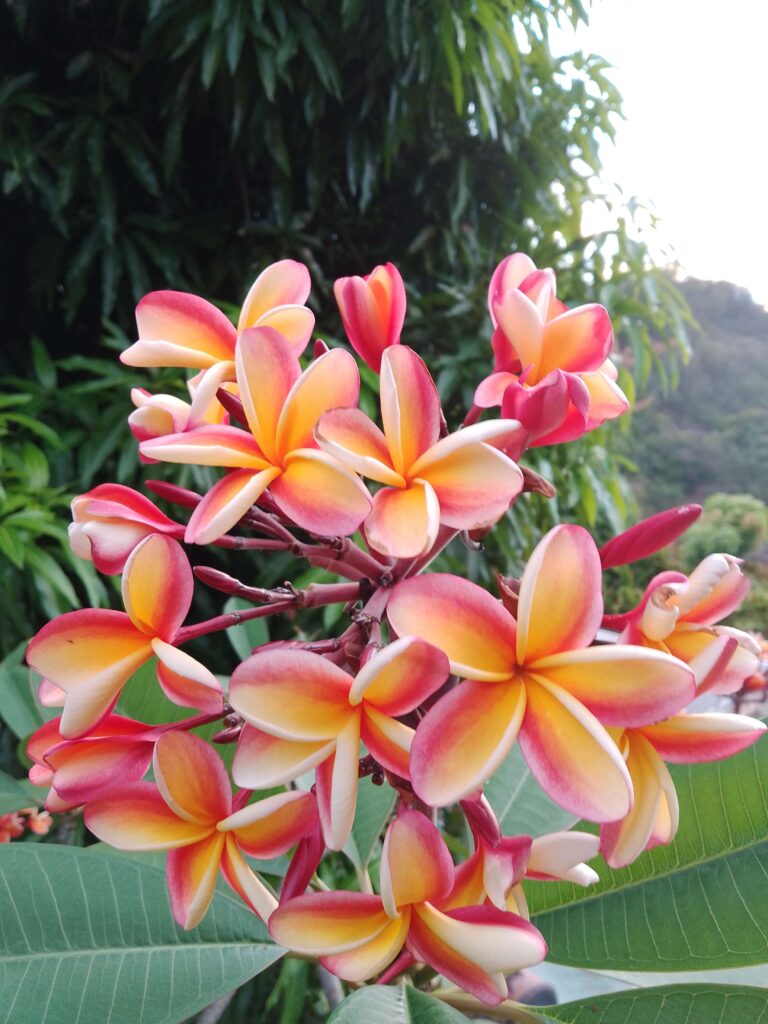

Then we rounded a bend and had to brake.
Not hard, though.
The long line of vehicles seemed to be jammed well beyond the acute bend. My daughter and her husband didn’t seem unduly worried, so I decided to join in.
Laughter, giggles, cheerful talk, and music drifted on the wind, surprising sounds in a phenomenon confronted in many countries by needless honking, fist-shaking, colorful expletives, and even outright brawling.
In his yellow hard hat and safety vest, a supersize road works supervisor strolled towards us, smiling in proportion to his size.
He closed the three fingers of his left hand, leaving the thumb and pinky to form horns, and waggled them in the “Iaorana!” greeting.
After a mutual exchange of friendly niceties, he let us know that traffic had been blocked right up to the fifth bend, a kilometer further up the road. The ongoing roadwork left a single lane regulated by temporary traffic lights. A big container truck, hoping to negotiate the bend, had succeeded in getting stuck. They were waiting for an experienced driver from the company to come and wiggle it out.
And meanwhile?
Young couples came tripping up, holding trays of fruits and snacks, moving body parts in time to a variety of Polynesian lilts floating in the air. We, too, got out and joined the party, casually shaking hips and twitching shoulders, munching snacks, sipping Hinano beer, making friends, and exchanging a few phone numbers.
Frankly, it was an impromptu road party, and we were all a mite disappointed when the hardhats started waving their flags, urging us to start crawling forward.
There were only tiny honks of triumph and gratitude!
And in French Polynesia, traffic jams caused by urban congestion are also uniquely civilised.
Piraes and Papeete have flourishing, modern tourist economies. Moreover, their pearl and fishing industries require sophisticated stocking and delivery / distribution systems. For that, read young, high-powered techies and executives in their SUVs, forming the vertebrae of unhurried, lazy reptiles during rush hour—either after a seaboard night or in anticipation of one at the end of the working day. Their loading racks carry surfboards, kite boards, water skiing, para skiing, diving equipment, harpoons, fishing tackle, and outboard motors.
The one thing that’s missing in all this, day in and day out, is honking, or any other sign of poor breeding reminiscent of continental France, Italy, Spain, and Portugal—the gang of erstwhile colonisers expecting bespoke right of way. And yet, their self-righteousness about their civilisational worth remains in top form.
Mark Twain called civilisation “a limitless multiplication of unnecessary necessities.” Self-authored myths elevate the composite of these superfluities to brand names of refinement. The size and height of their living vestiges, from the pyramids, the coliseum, Hagia Sophia, the Taj Mahal, and the World Trade Centre, are spellbinding. Yet, these enthralling signs also validate illegal seizure of real estate, slavery, looting, massacres, and despotic governance claiming divine rights.
Social behaviour and interaction are excluded from the equation.
The Second World War’s bloodletting influenced social re-engineering in secular democracies, relative press freedom, and the democratisation of communication-enhancing technology. Civilisation was reassessed and redefined. The right to conquest was proscribed by the Nuremberg Trials and repealed by United Nations Resolution Article 2, Paragraph 4 in the UN Charter.
Just as the global balance of power is shifting, measuring civilizations by human behavior also nudges acclamation away from the traditional tin gods.
France provides an opportunity to study both criteria. Continental France and the Overseas Territory of French Polynesia offer two distinct behavioral patterns.
Except for 18.22% of the population in rural areas, drivers in continental, urban France often confront traffic jams with a medley of multi-pitched car horns, threatening gestures, and indecent gesticulation.
Their horns petulantly proclaim, “I’m special; the road belongs to me.”
In spite of a fine of up to €150, this anarchic cacophony continues to prosper.
Except in French Polynesia, where it is remarkable by its absence.
Linguistic, archeological, and genetic studies place the origin of the Polynesians in Taiwan, with migration to Papua New Guinea, and lastly, just before the first millennium, to present-day French Polynesia. Since then, contact and intermarriage with Europeans and Chinese have resulted in a multi-ethnic, multicultural, and laid-back society, ferocious only in self-defense.
They are tall, broad-shouldered, strong-boned people: natural sportspersons in rugby, long-distance running, surfing, swimming, deep sea diving, and team paddling, laughing with delight as their frighteningly slim va’a canoes bob on alarmingly high waves.
Their average height of two meters during the time before contact with the Chinese and Europeans is borne out by the length of their bows and quivers, lances, and war clubs displayed in museums.
French Polynesia is blessed with an abundance of eye-dazzling exotic fruits sold by cheerful vendors under craggy peaks soaring to nearly 2000 meters, waterfalls the envy of Johnny Weissmuller’s Tarzan series, the world’s largest ocean, freshest and tastiest fish, whales and dolphins, lagoons, deep water, and the most challenging, world-class surfing waves.
French Polynesia’s reef-break waves and their unique patterns attract the biggest names in surfing. Teahupo’o, 75 kilometres southeast of Papeete, and on Tahiti Nui, holds the annual Billabong Pro Tahiti surf competition and hosted the 2024 Summer Olympics surfing events.
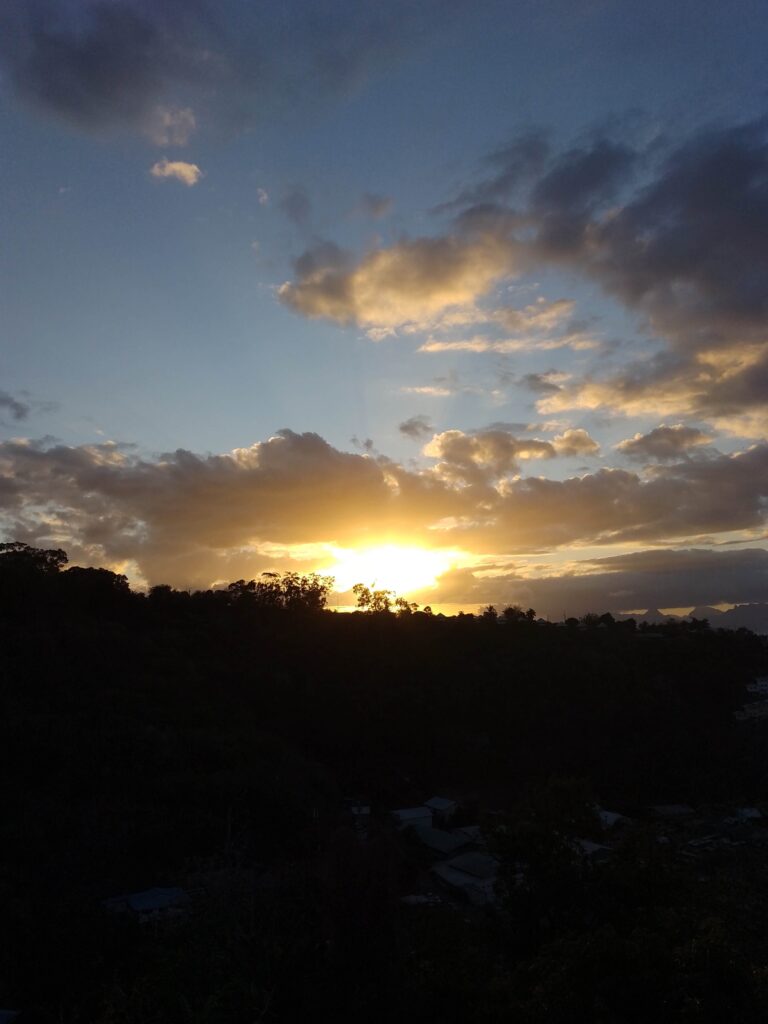
Yet, when all the talk of exotic fruits and vegetables, dream-sequence beaches, and wave-lapped restaurants is over, it’s the people of Tahiti who stand head and shoulders over and above their exciting wave patterns.
Enjoying their barbecues and socialising with each other and sharks, whales, and dolphins, Polynesians are easy-going. They preempt conflict with their smiles, laughter, courtesy, and minor buffoonery. That means they don’t pick fights, but only a village idiot would pick on them!
This brings the criteria of civilisational achievement into focus.
Is it urban congestion, phallic architecture, and gadgetry?
Branded clothes turning citizens into docile advertising panels?
Weapons of mass destruction?
Looted art displayed in museums as repositories of cultural artifacts?
Good breeding doesn’t seem to figure in this assessment.
If it did, French Polynesia would be at the head of a list.
For civilised conduct, Tahiti’s closest parallel might be India’s over five-thousand-year-old Indus/Harappan/Saraswati civilisation, which, so far, has betrayed no significant archeological signs of armed forces, armed conflicts, violence, looting, political skullduggery, or social inequality.
DNA is still a very young science and a hotly contested field for competing, grant-dependent lobbies; it is best left to the competent. This humble scribe is limited to observing comportment. So, on the surface, both civilisations would seem to share something worthwhile.
In modern times, when cultural traits governing human interaction to distinguish a civilisation are taken into account, Tahitians triumphantly ride the waves!
“The flowering of civilisation is the finished man, the man of sense, of grace, of accomplishment, of social power— the gentleman.” ~ Ralph Waldo Emerson, 1803-1882.
Picture by author

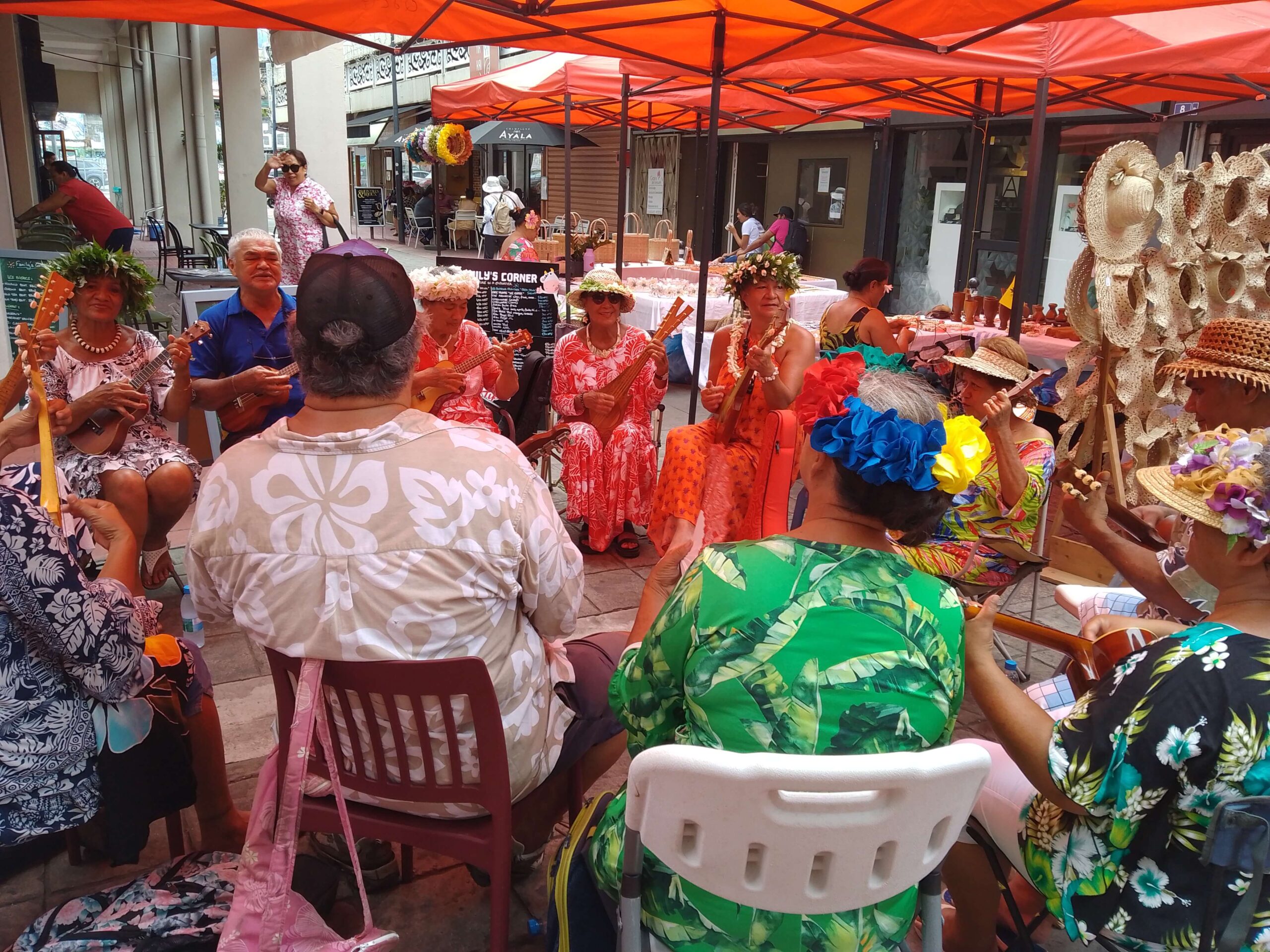
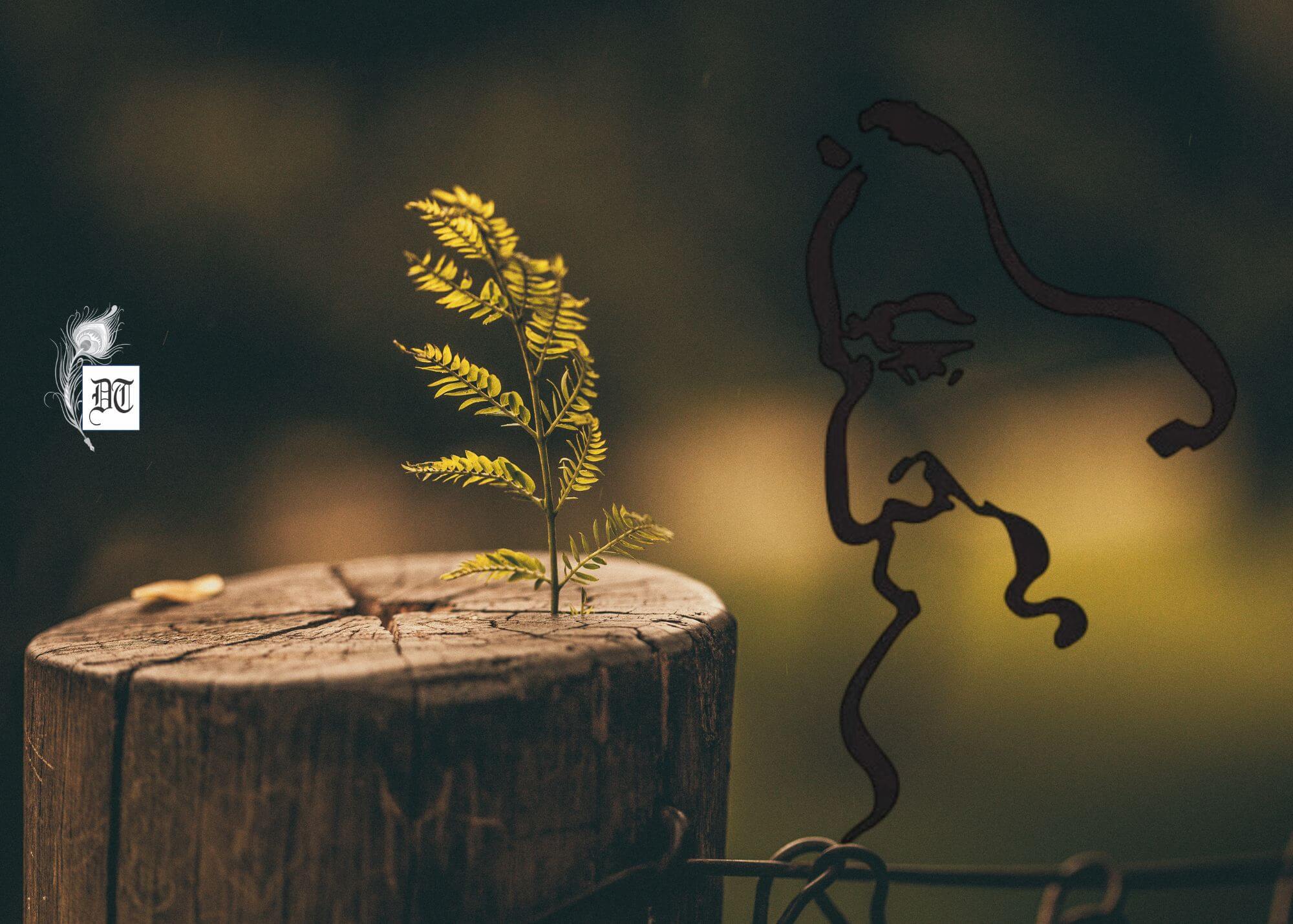
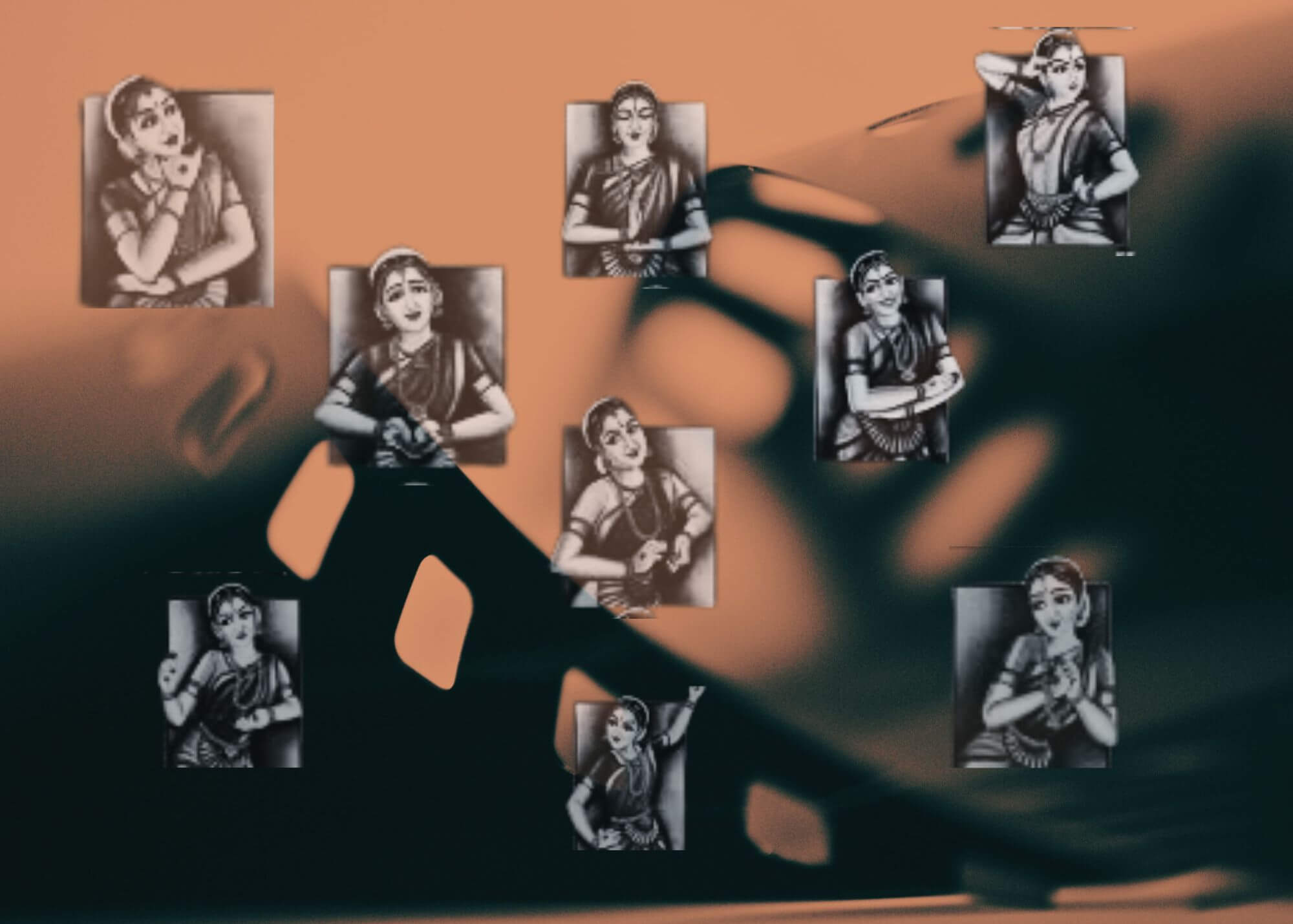
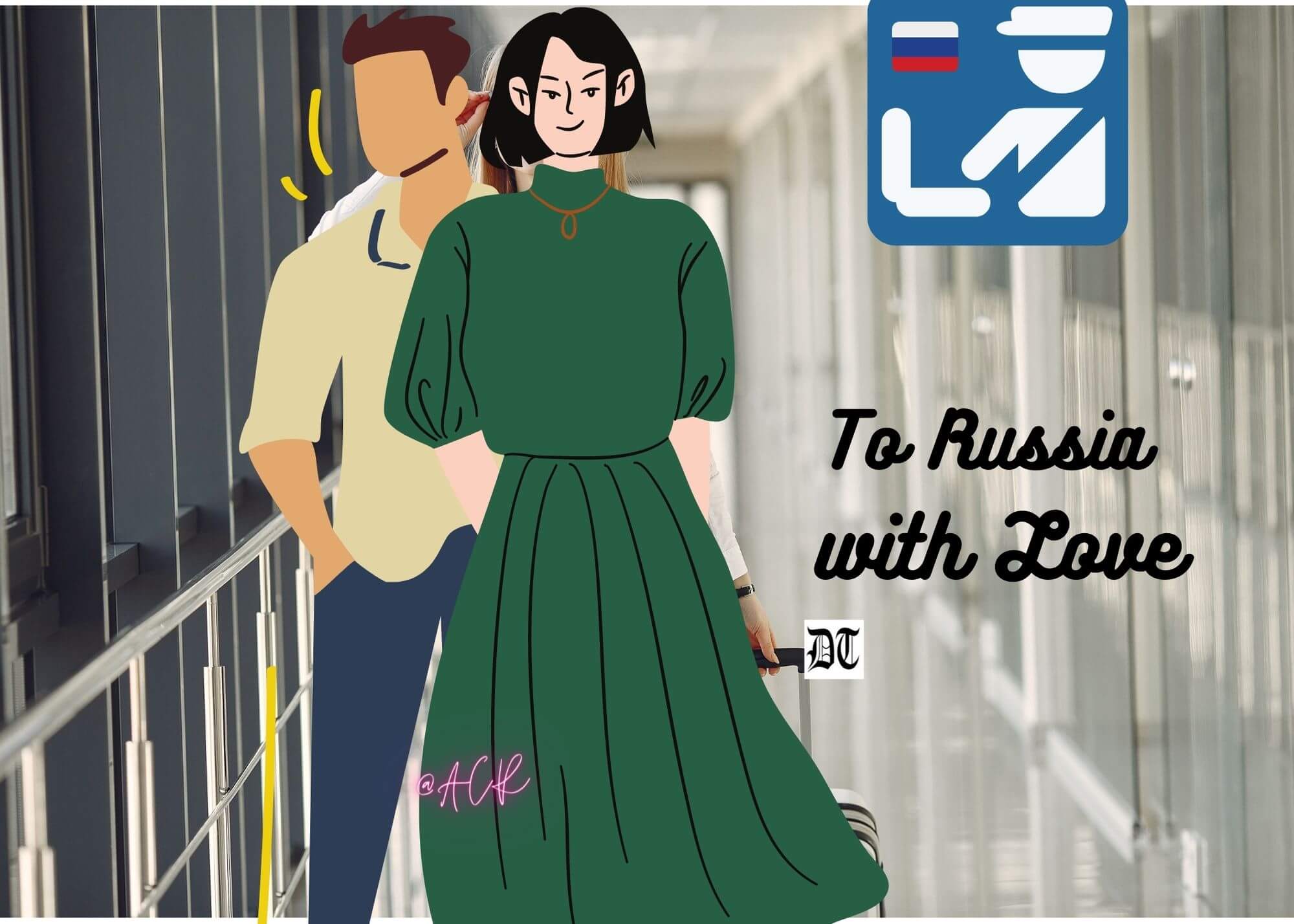
 By
By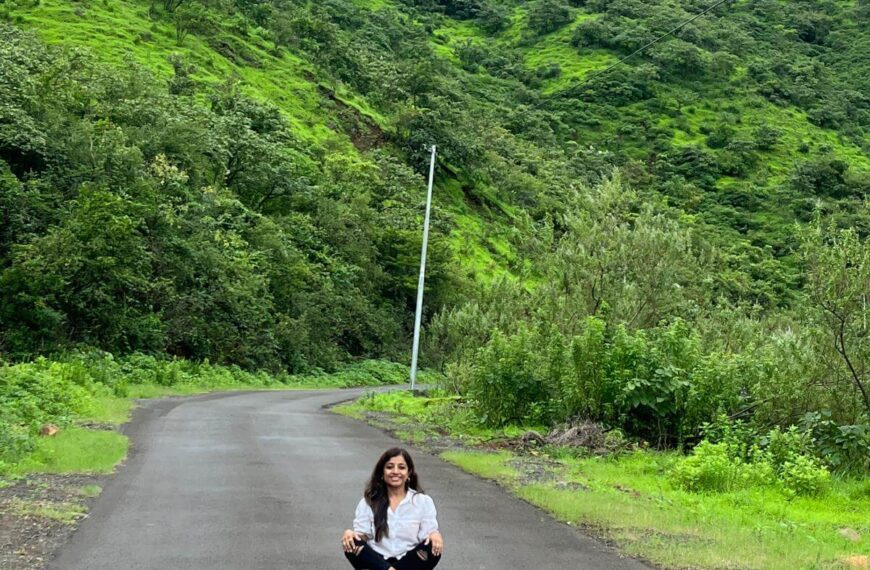


An article that has left me awed and in admiration of the Tahitians. It makes me balk at the Indian traffic scene – the total lack of consideration for others and the ‘offensive culture’ dominating our roads. We rarely encounter Emerson’s ‘finished man’. Your description of the drive and the spots you encountered along the way are vividly mesmeric.
Your direct, unapologetic glance at ‘the criteria of civilisational achievement’, asks questions that each of us claiming to be from civilised countries should honestly delve into and learn from French Polynesia.
An articulate, engrossing article written in your incomparable style.
Thank you so much for your incisive, enriching and generous comments.
Gill Sahab. I happened to read your piece today. As usual, it has the touch of a master class. It is completely enthralling, with humour and puns beautifully intertwined to give the reader a pleasant reading experience. And your commentary on the civilised world’s double standards is the ‘Piece de Resistance’. Thank you.
Thank you Nitin jee,
Coming from a fellow-write,r your appreciation means a lot.